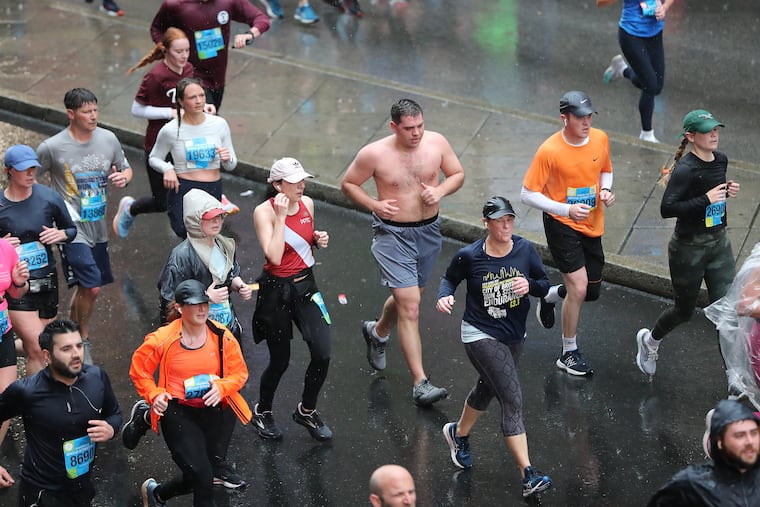A woman went into cardiac arrest at the Broad Street Run and was revived with a defibrillator
The 26-year-old runner was taken to Thomas Jefferson University Hospital.

A 26-year-old woman suffered a cardiac arrest while running in the Independence Blue Cross Broad Street Run on April 30, city officials said.
Bystanders performed CPR until an ambulance crew showed up and shocked the woman’s heart with a defibrillator. She was then taken by ambulance to Thomas Jefferson University Hospital; her heartbeat was restored but she was still unconscious.
The city would not disclose details about the runner’s current condition, citing patient privacy rules. But the incident is a reminder that serious health problems can occur during the 10-mile race. In 2019, a 25-year-old race entrant died of sudden cardiac death, and at the 2015 Broad Street Run, two runners went into cardiac arrest but were revived.
» READ MORE: Medical director for Broad Street Run offers tips to stay injury-free
The incident this year occurred just before 11 a.m., at the intersection of Broad and Moore Streets, according to a spokesperson for Philadelphia Parks & Recreation, which organizes the race.
Cardiac arrest does not mean the heart has stopped completely. It means the heart has stopped beating normally, and instead is quivering with a fast, abnormal rhythm, no longer able to pump oxygenated blood throughout the body.
By administering CPR — repeated compressions to the patient’s chest — bystanders circulated oxygenated blood in her body while her heart was unable to do so.
An automated external defibrillator (AED), a portable version of the paddles used in emergency rooms, was then used to reboot her heart, shocking it back into rhythm.
Such devices are increasingly common in airports and other public places. All Philadelphia public school buildings were equipped with at least one such device as of 2016.